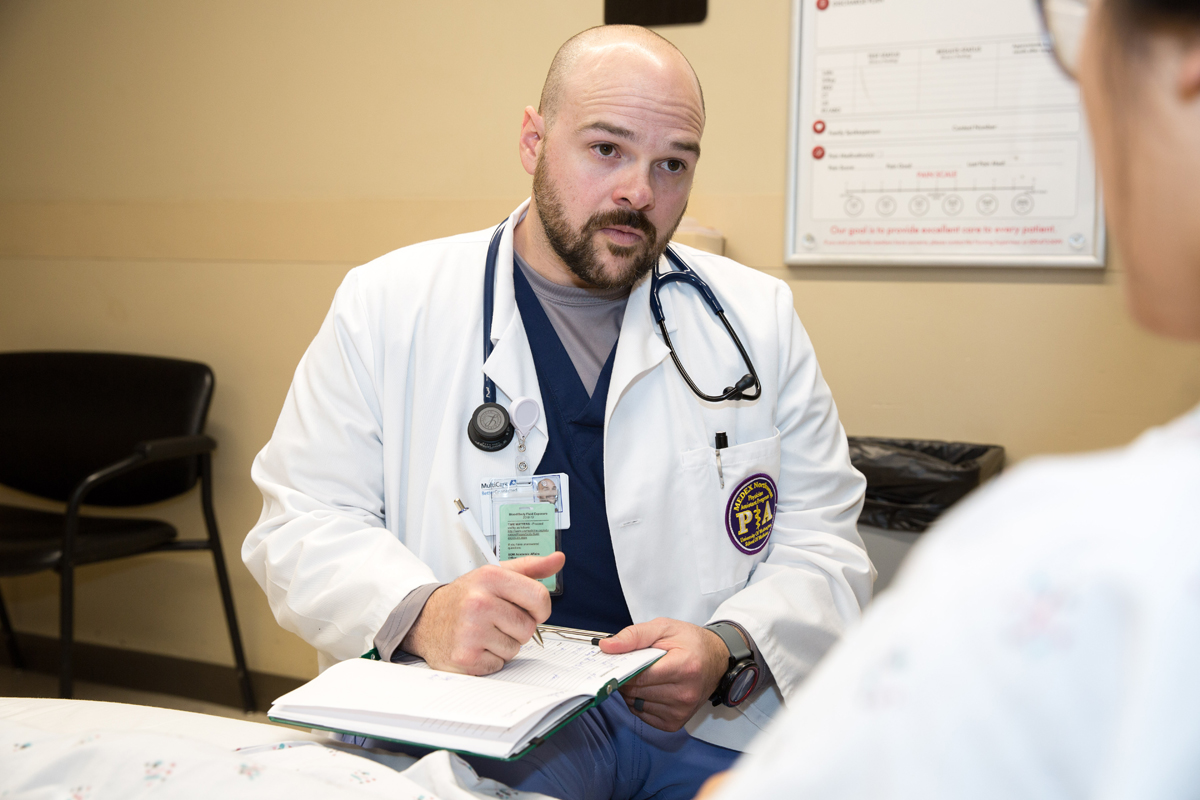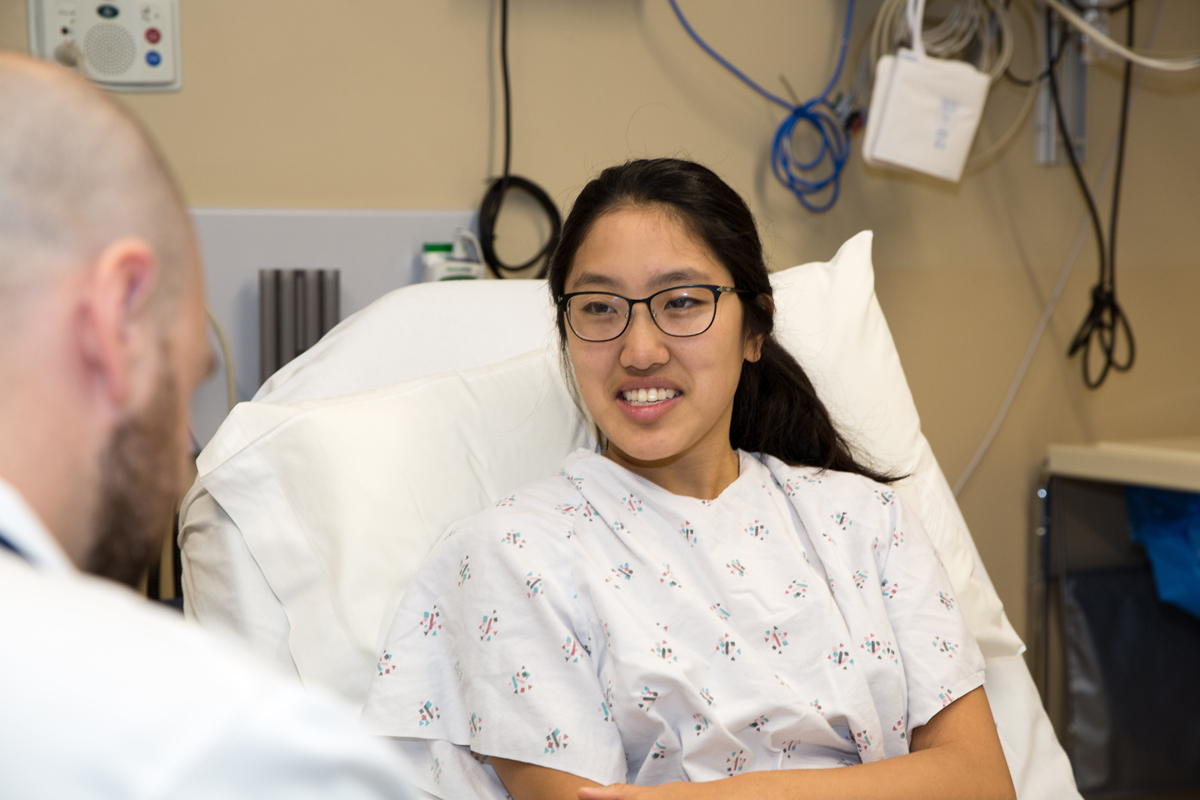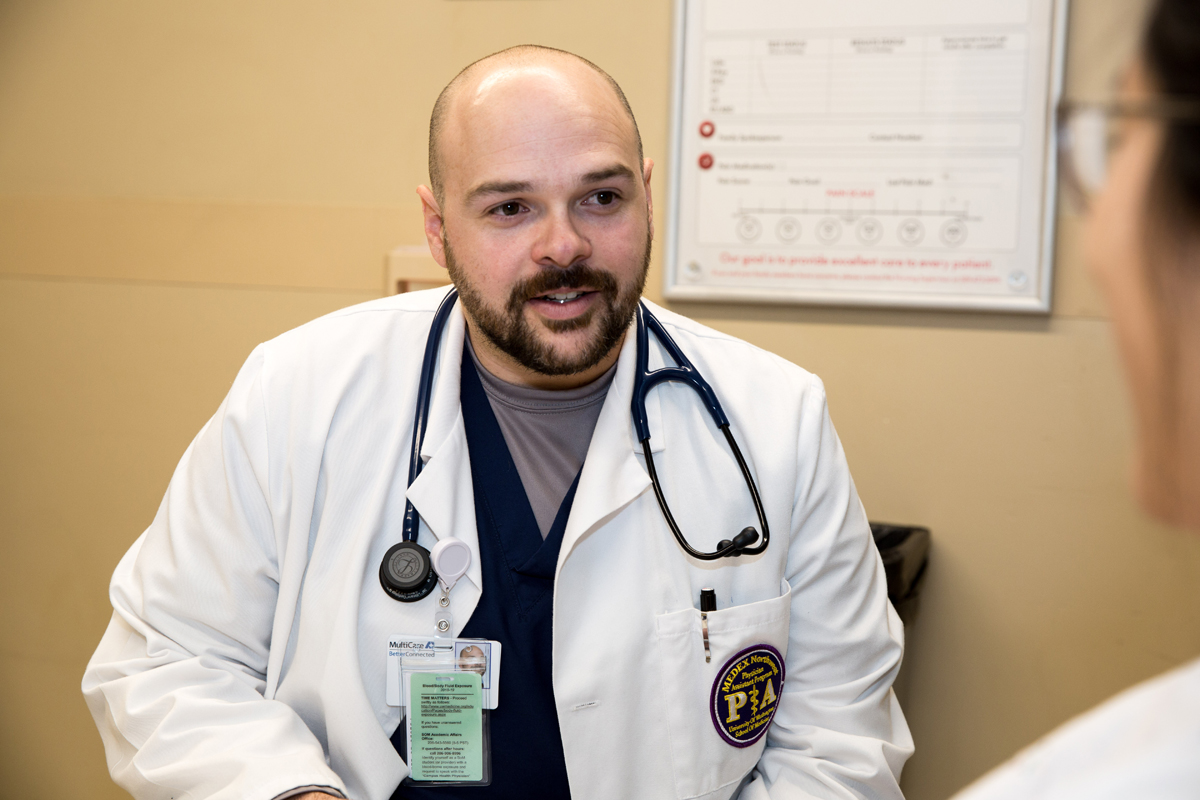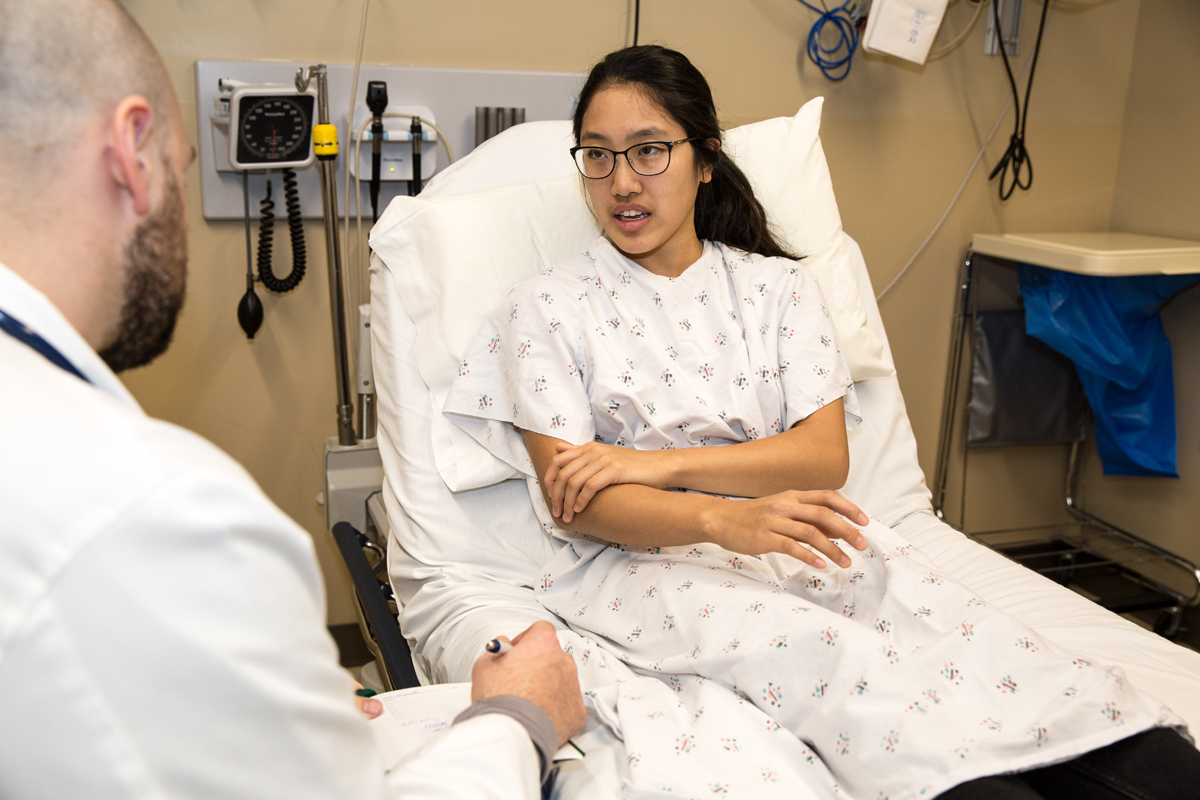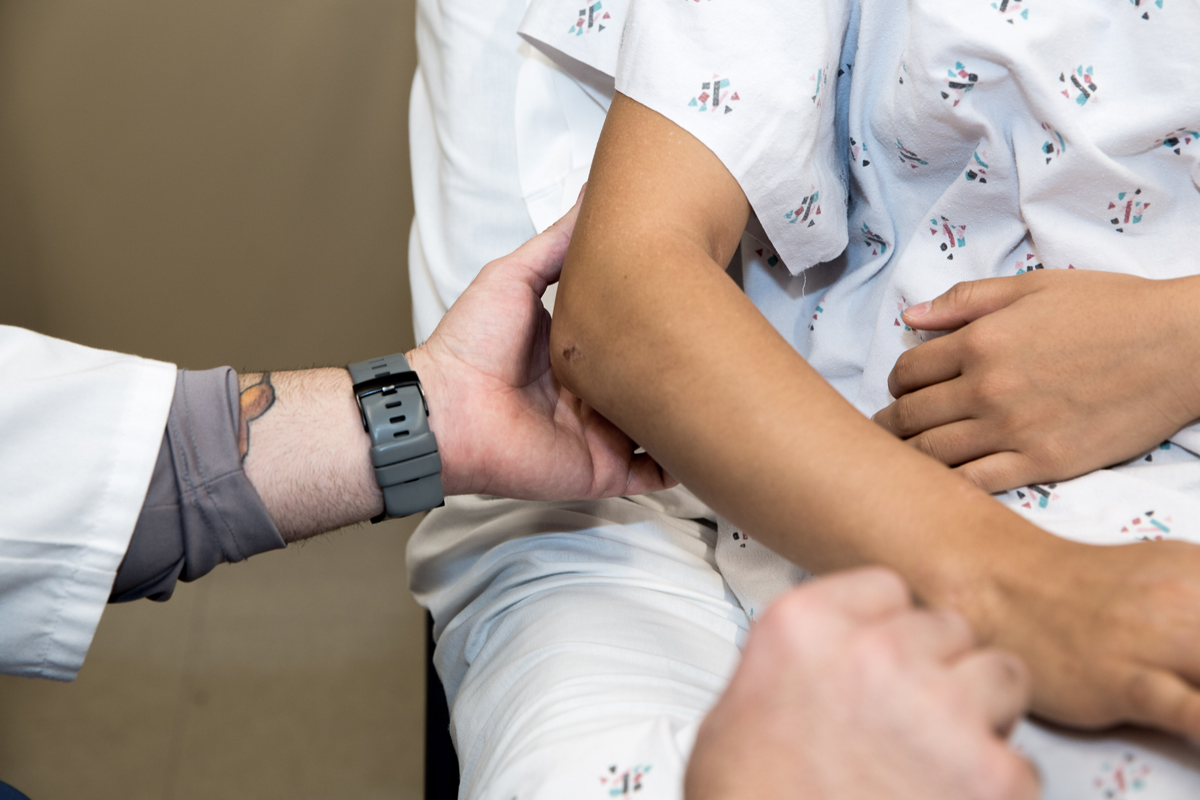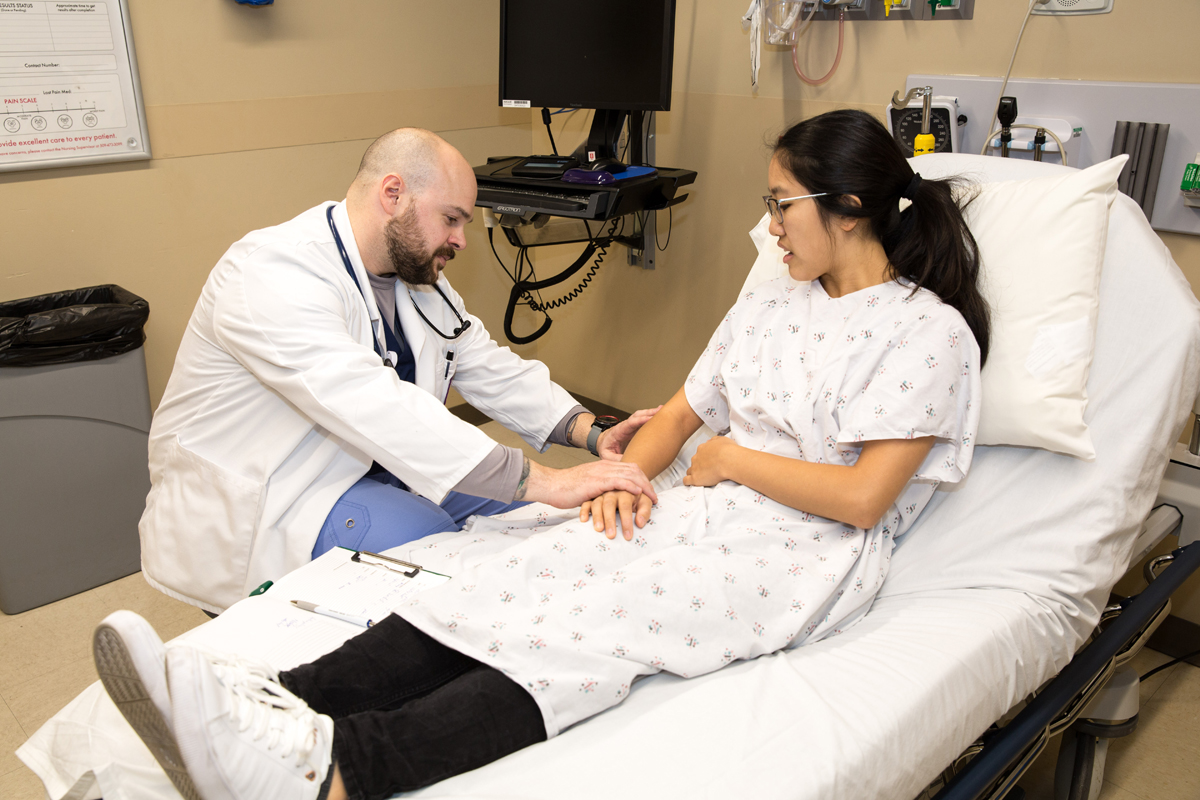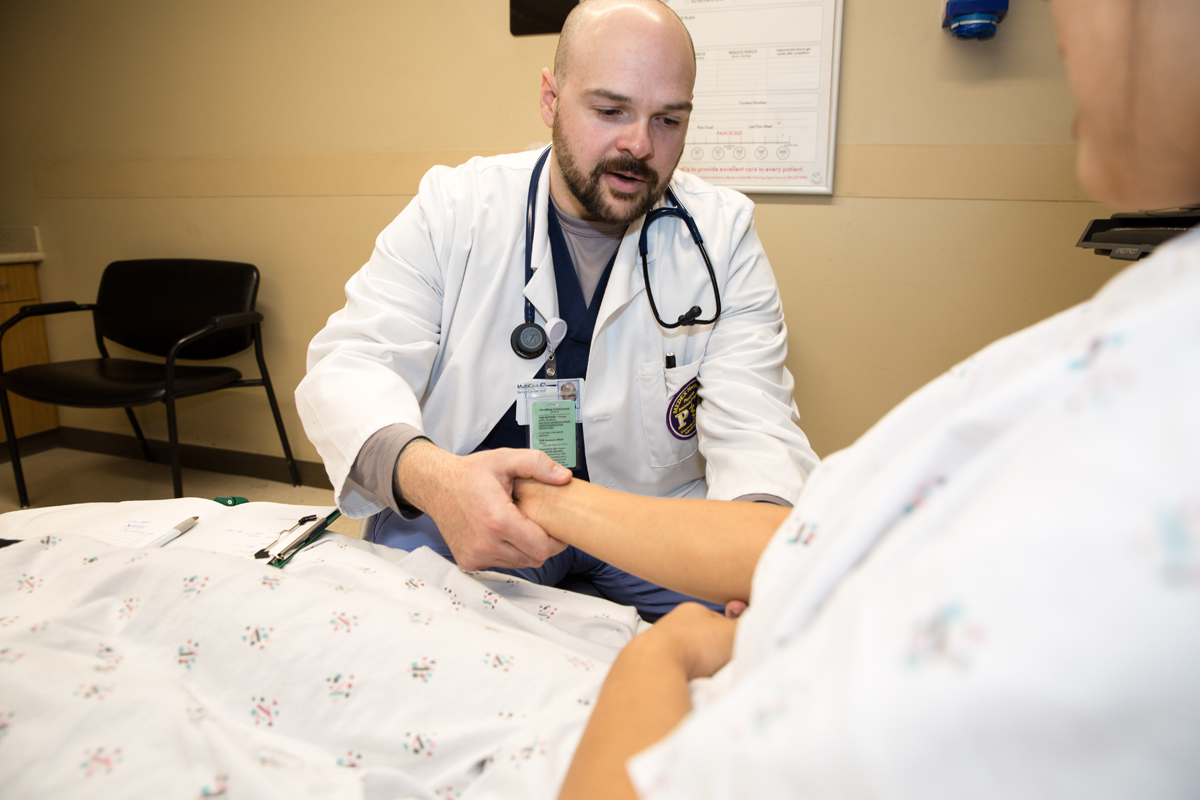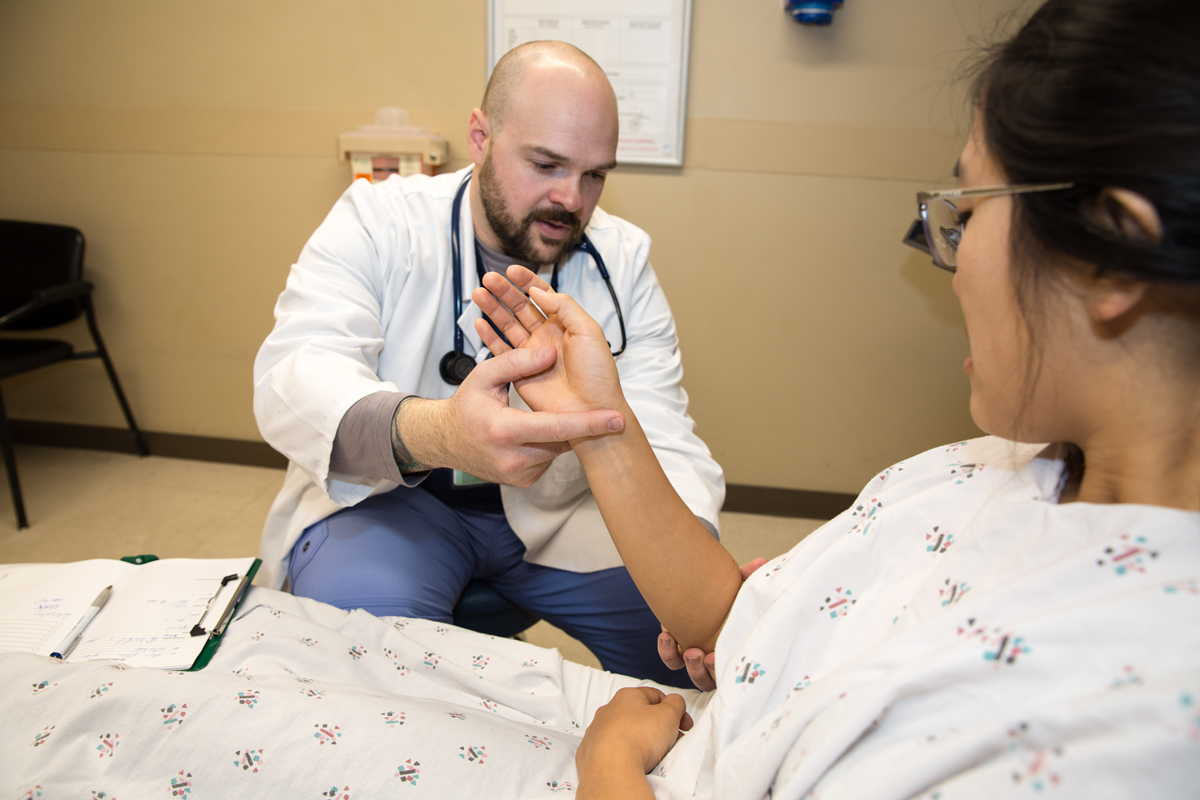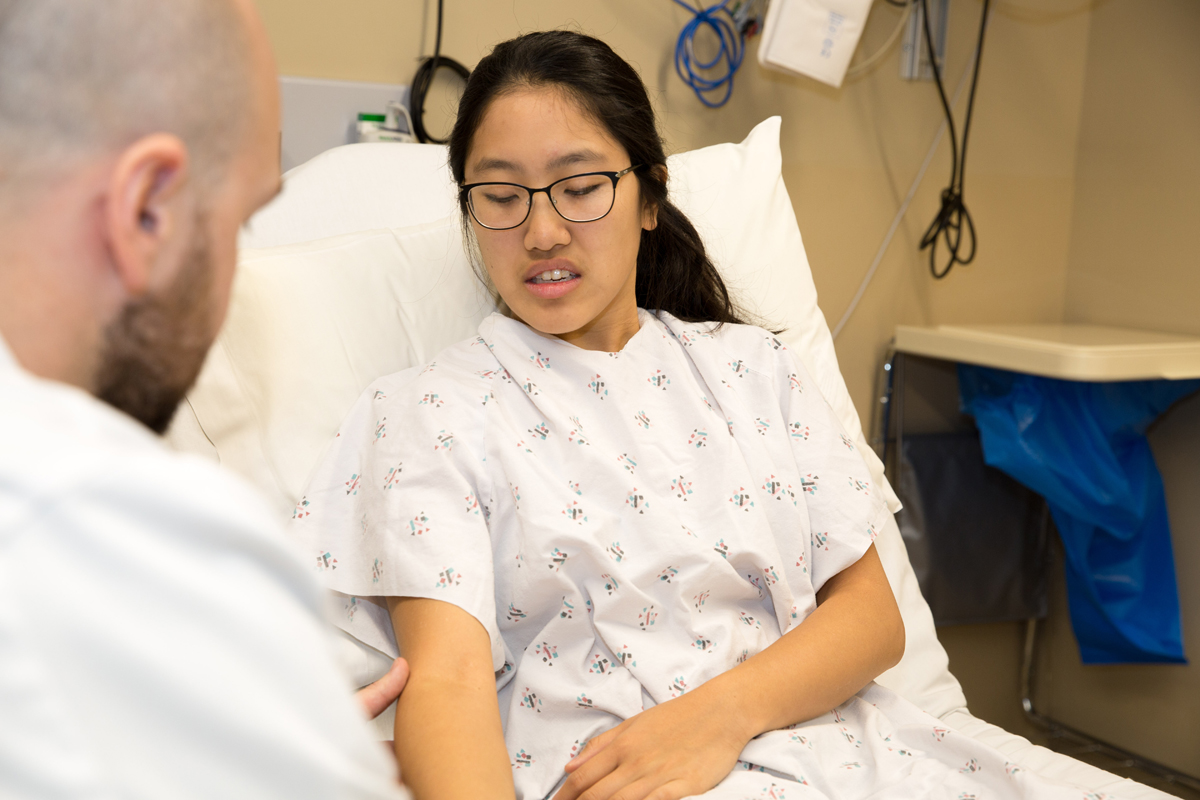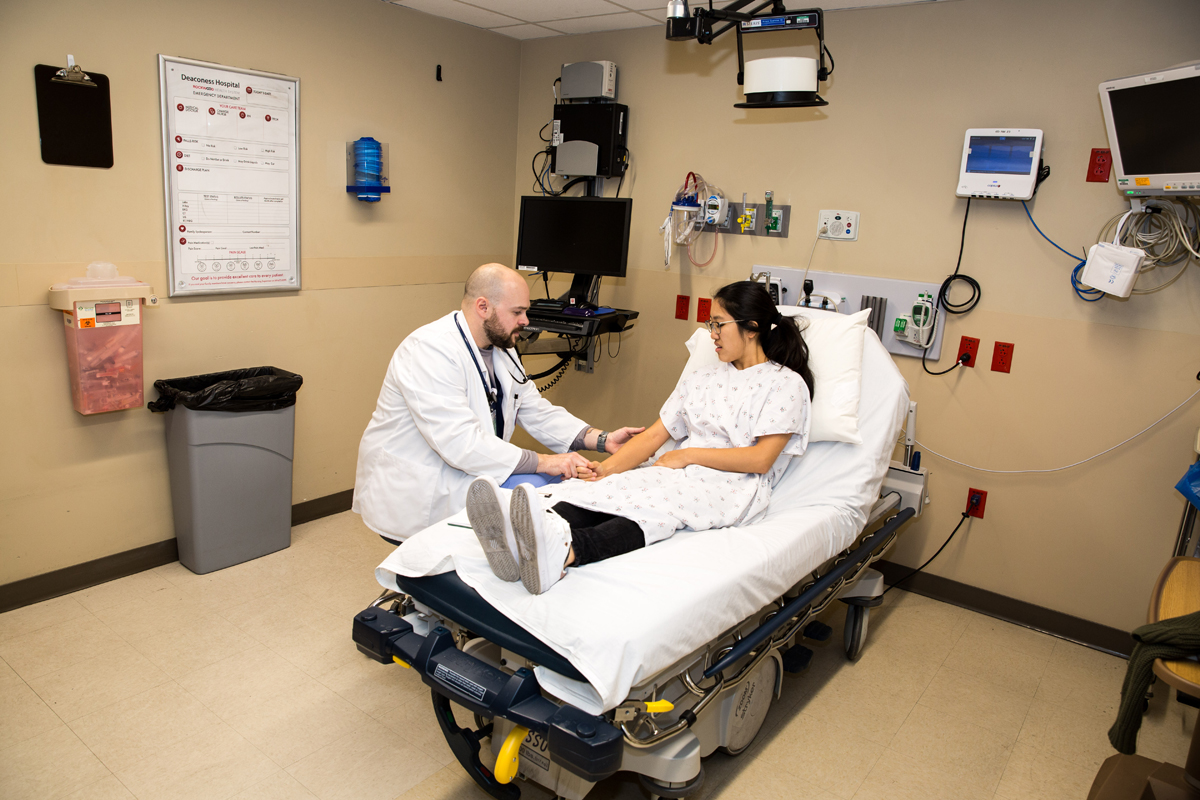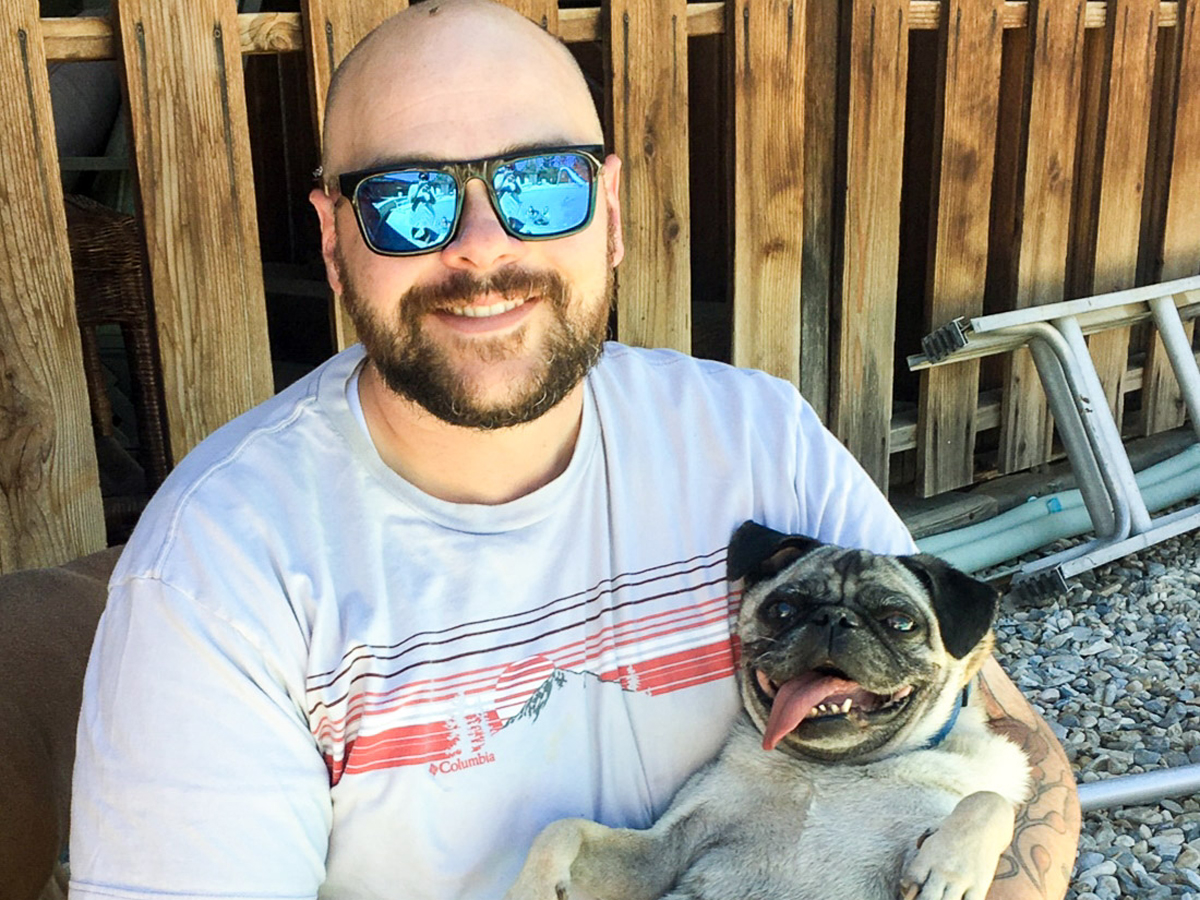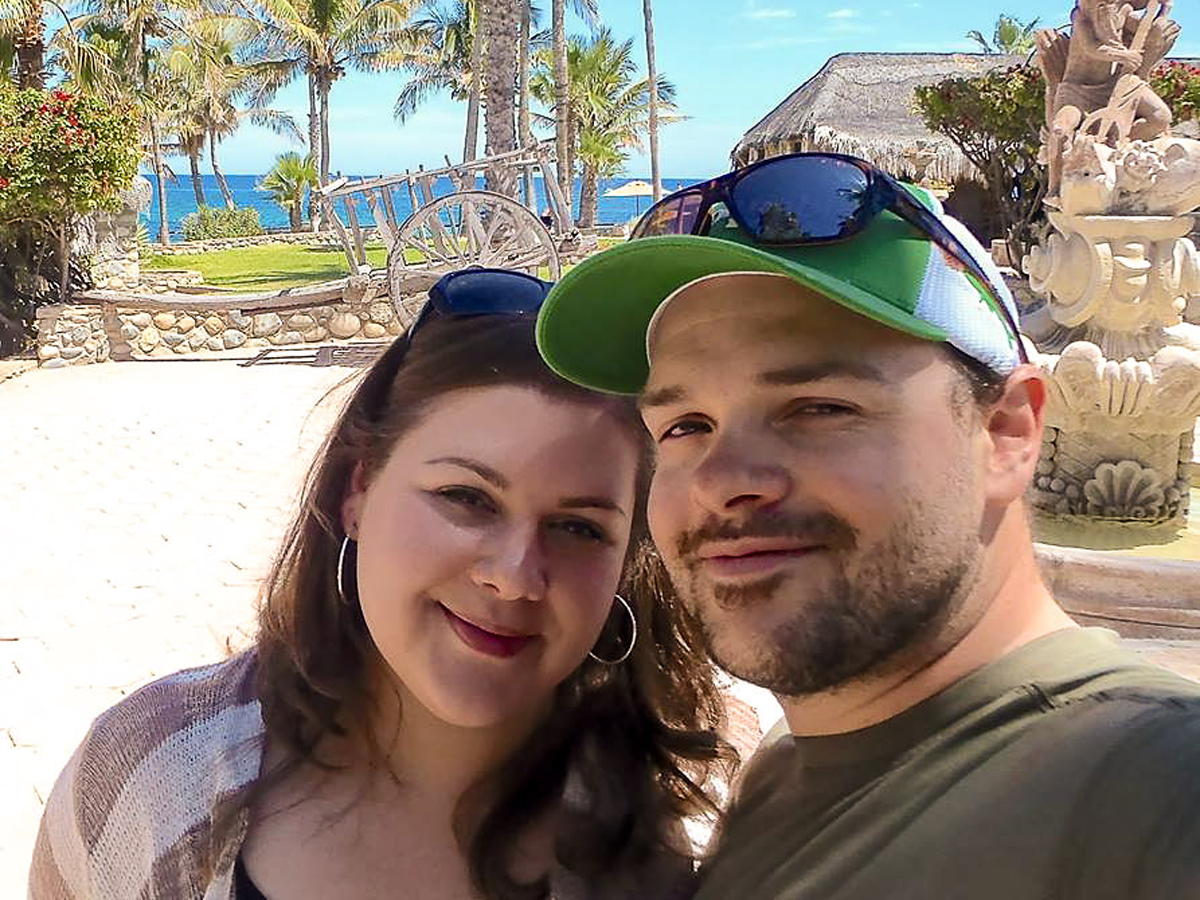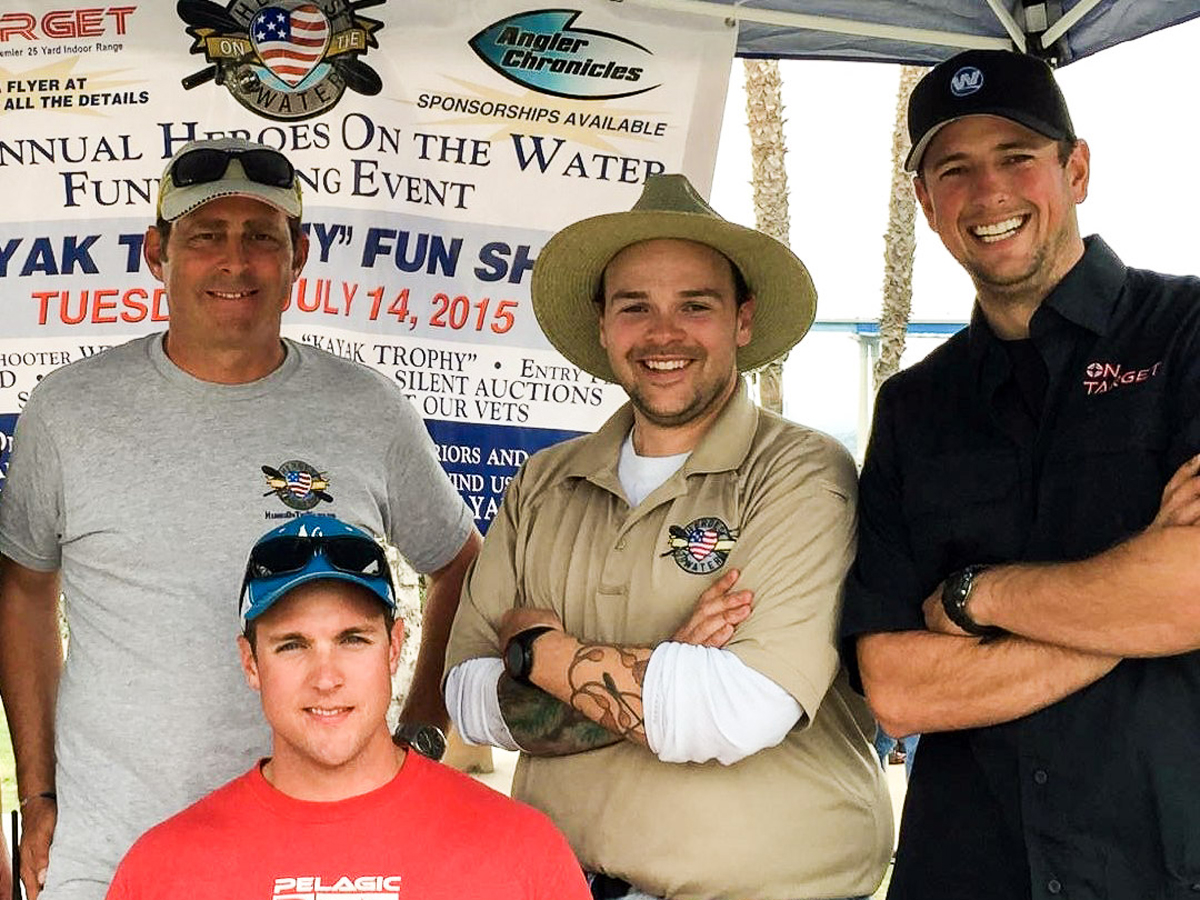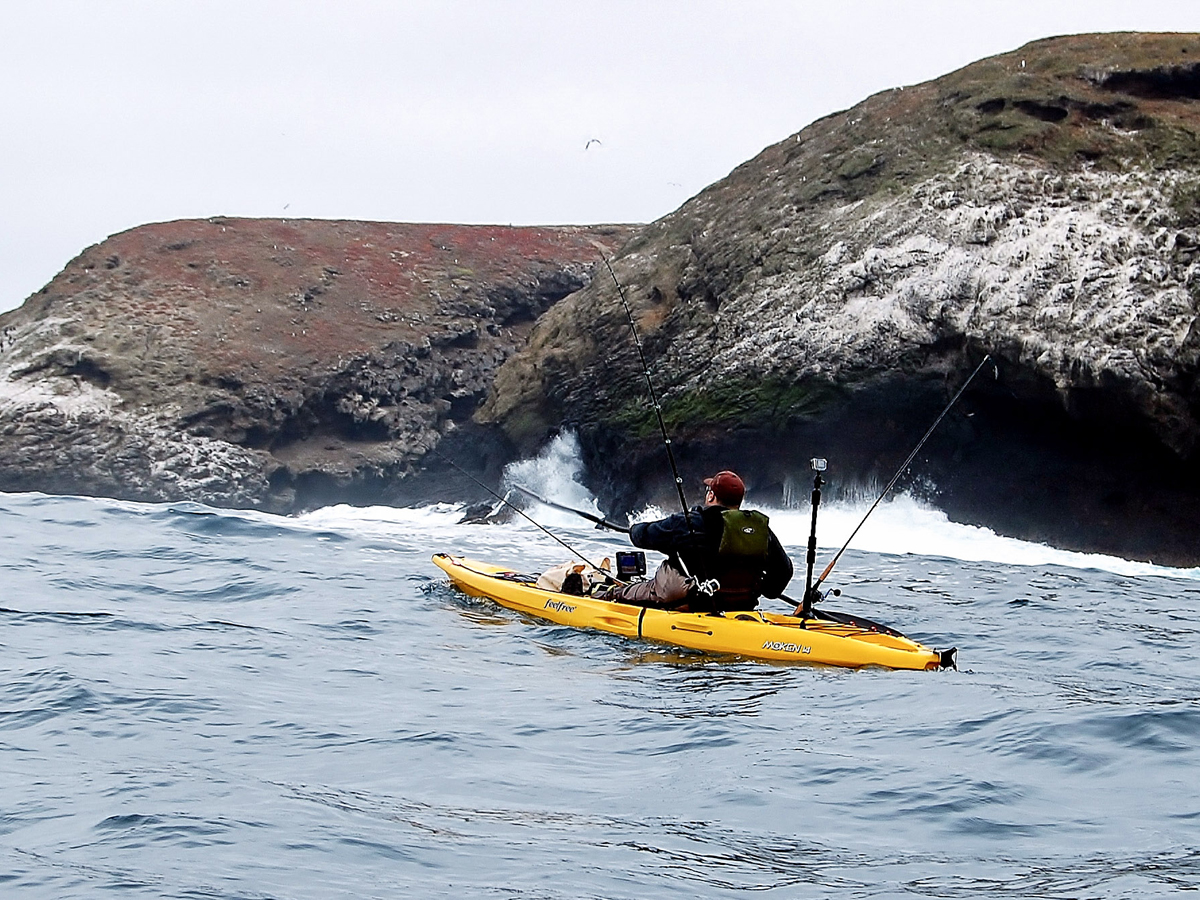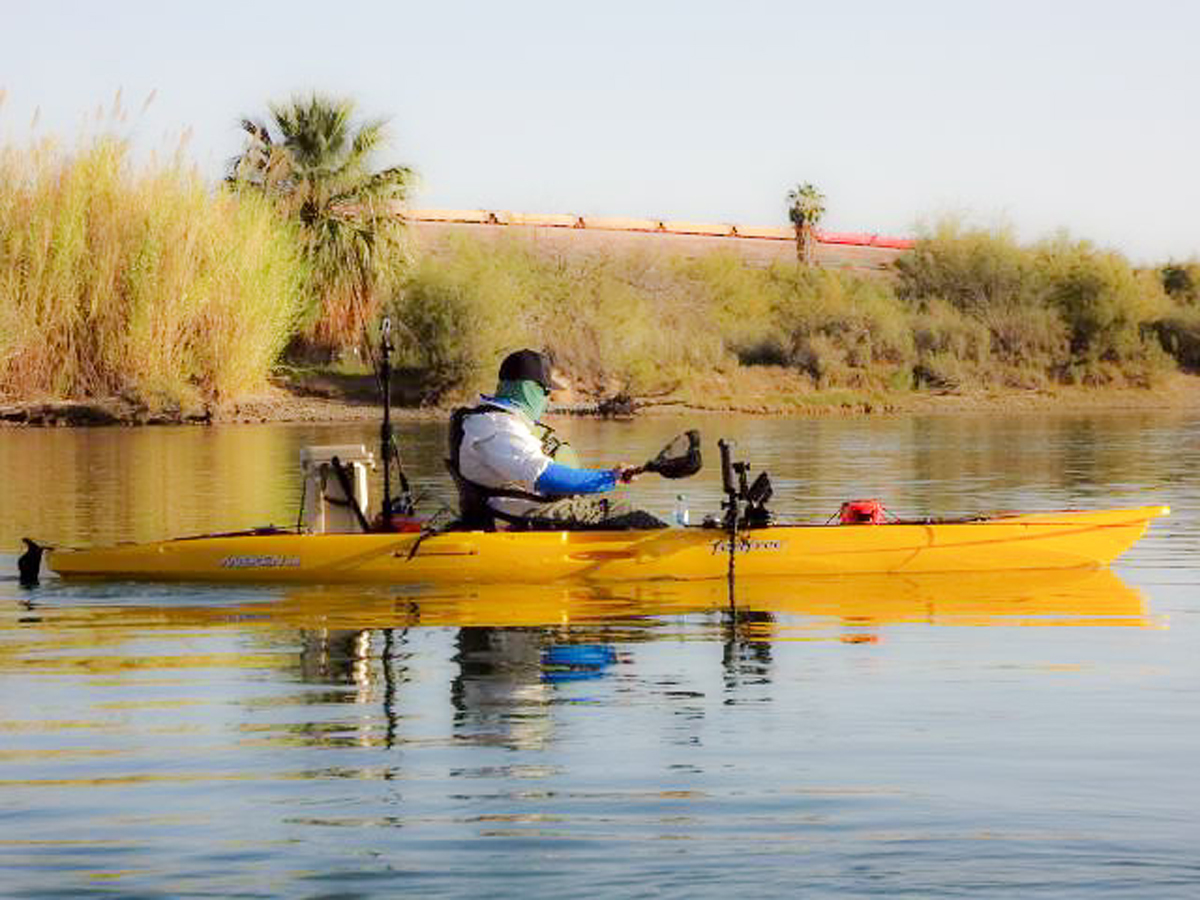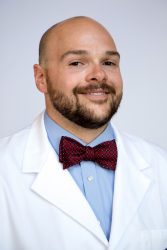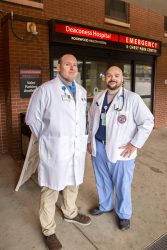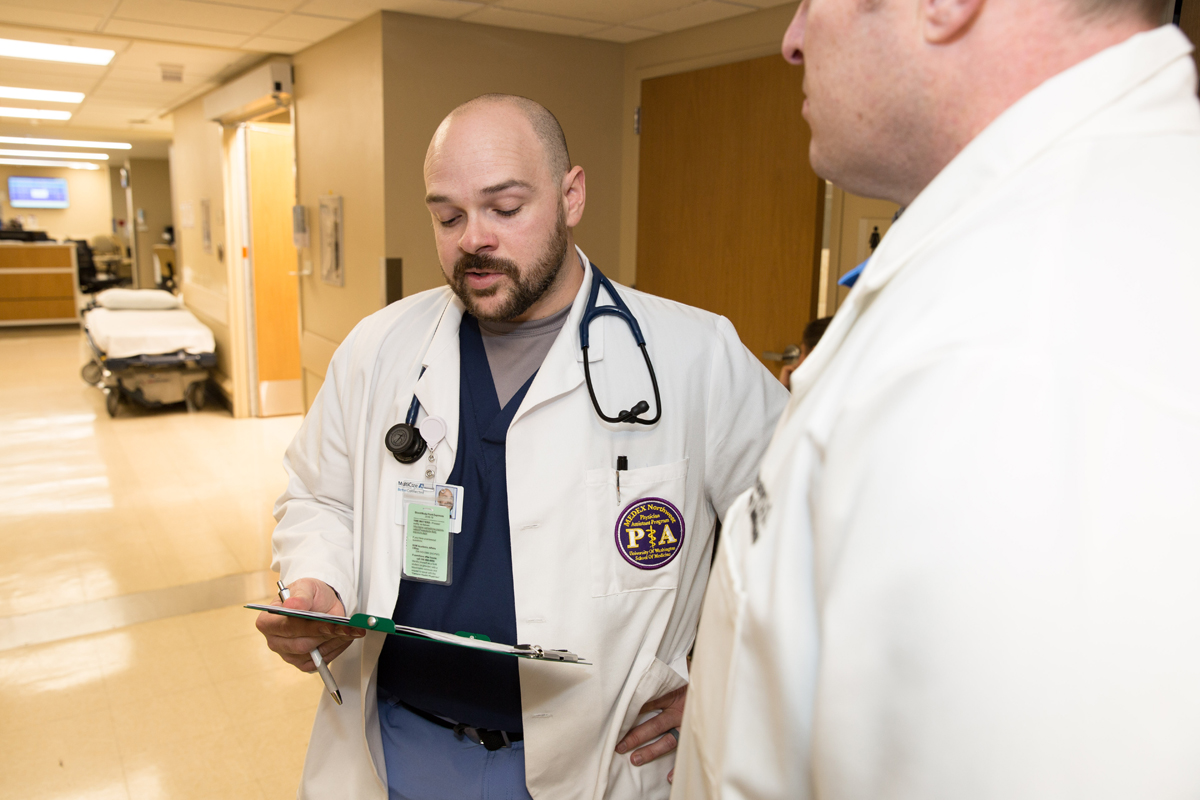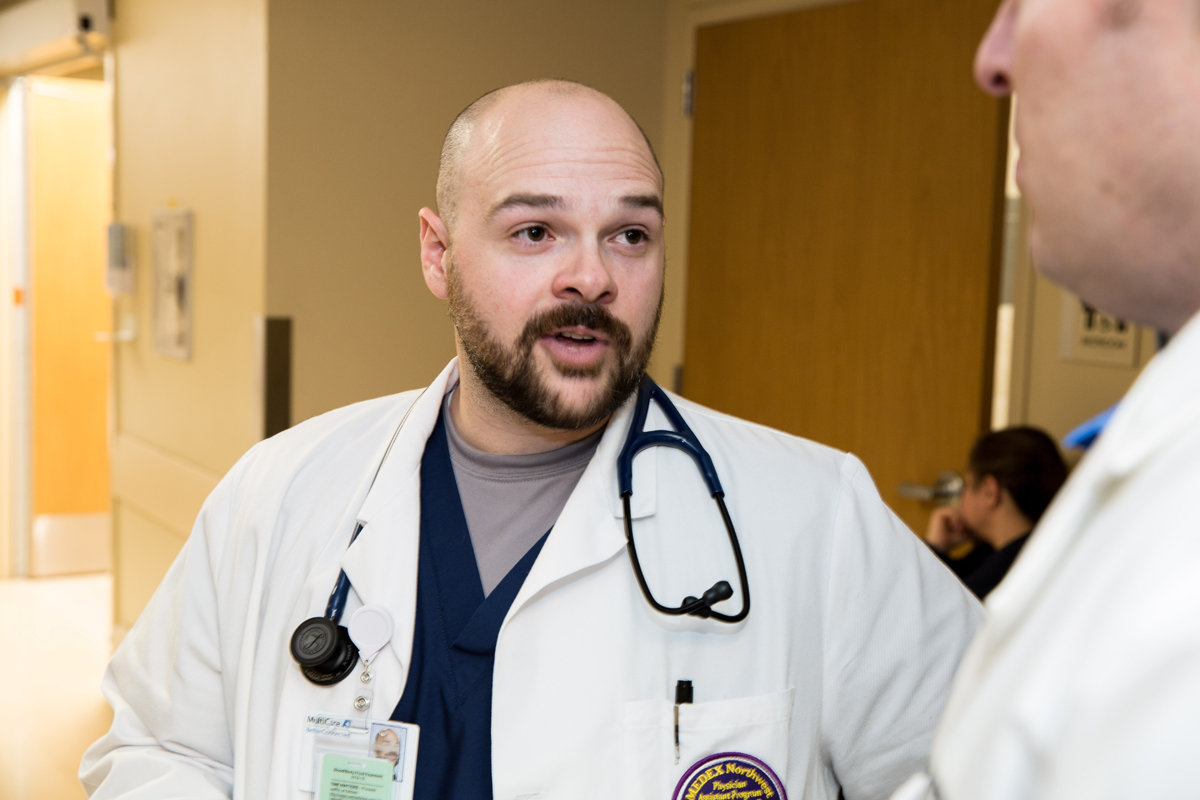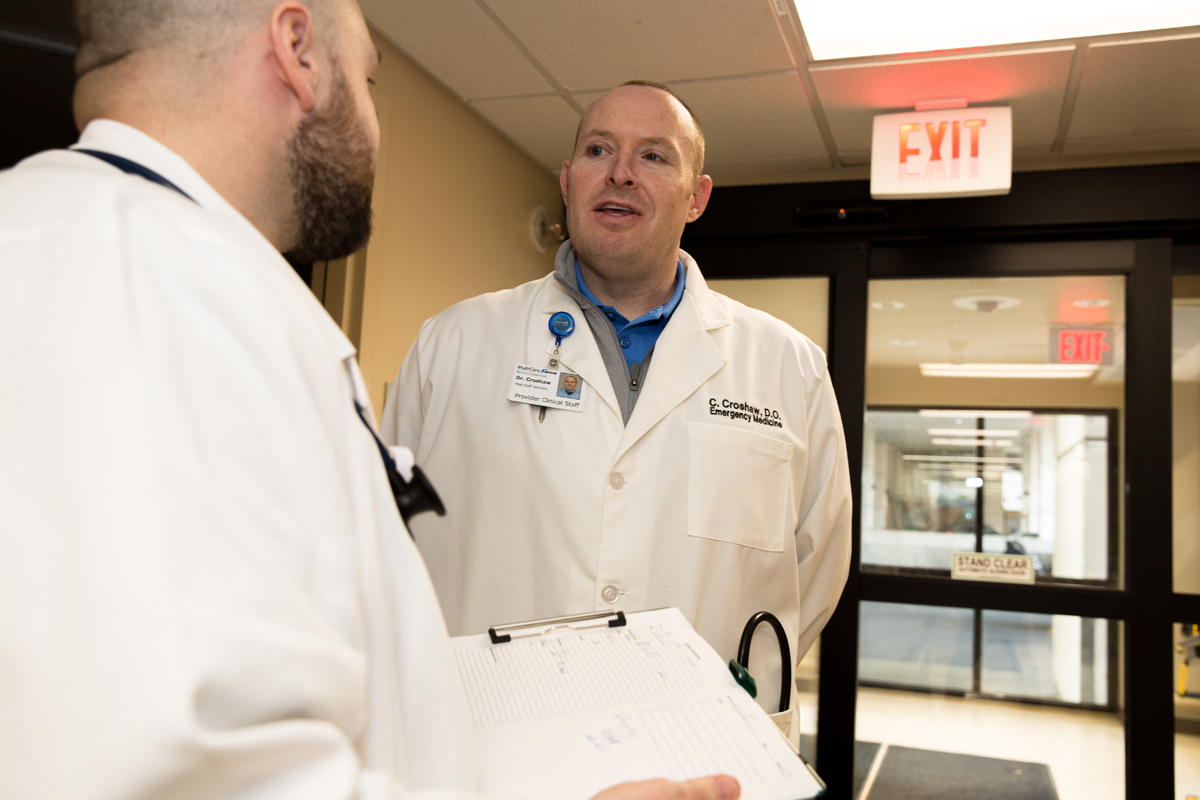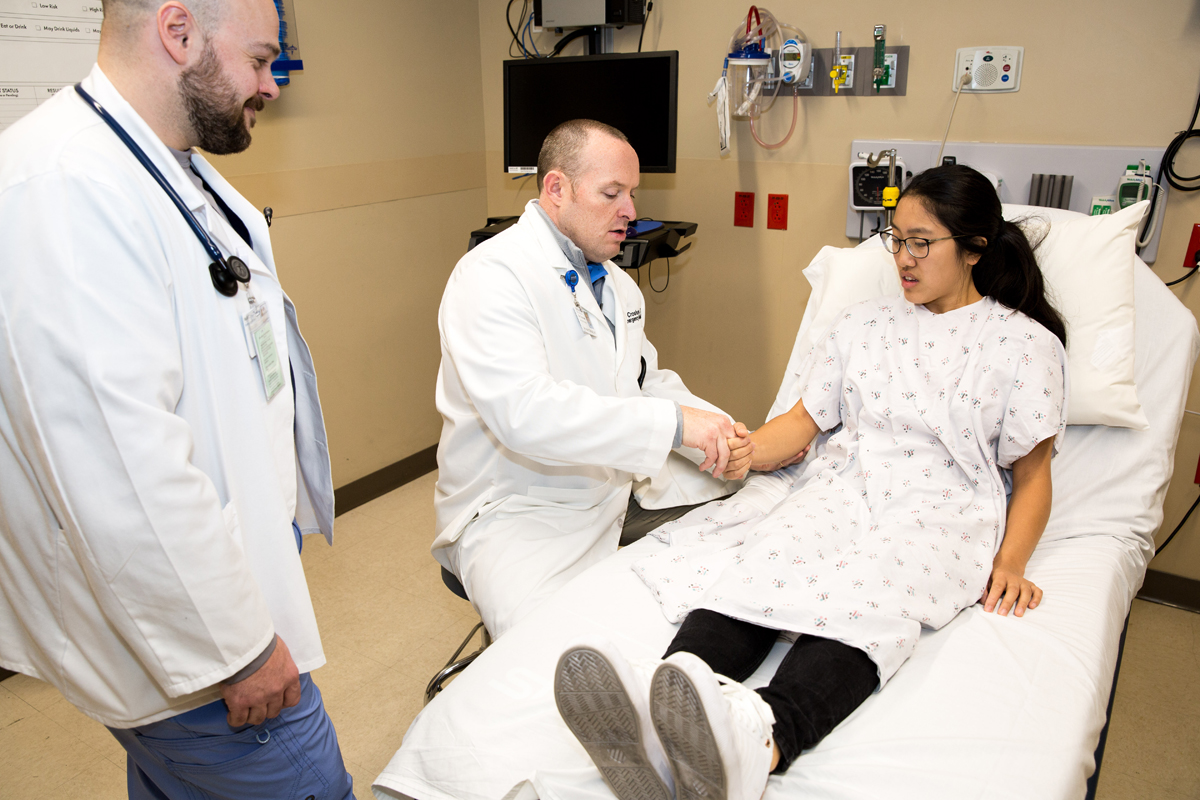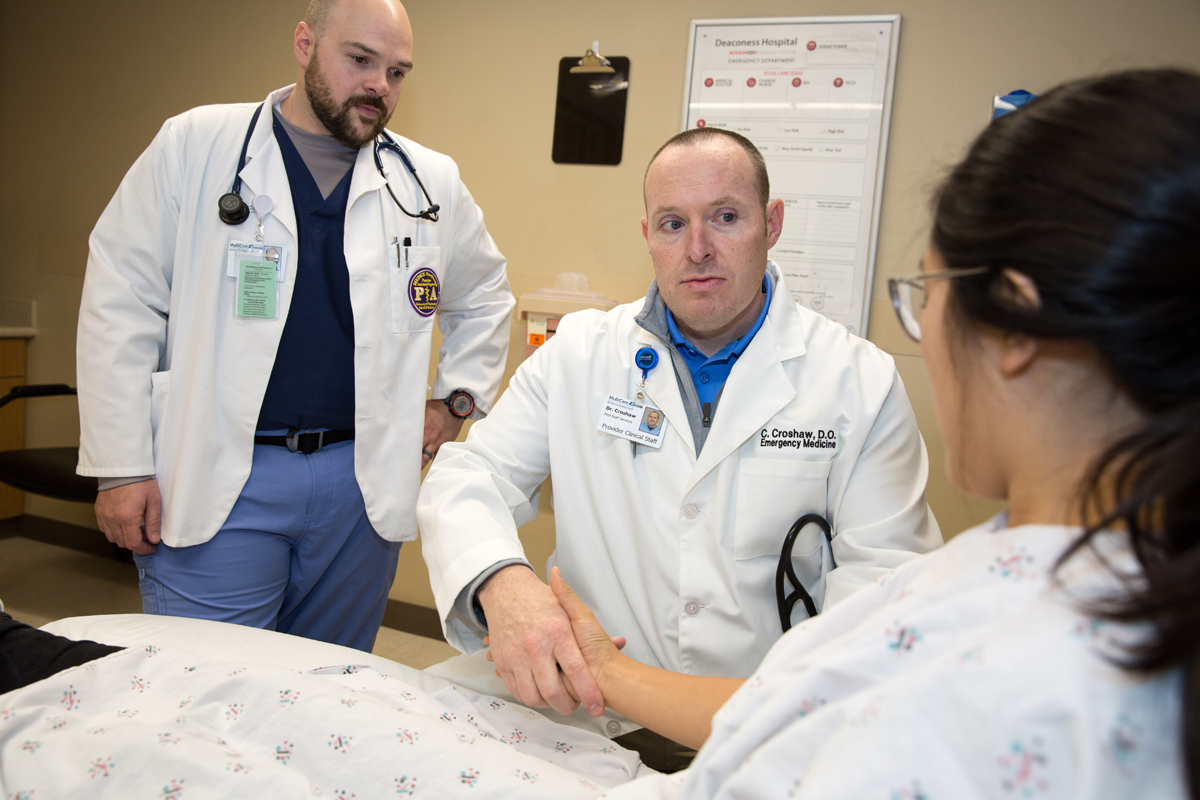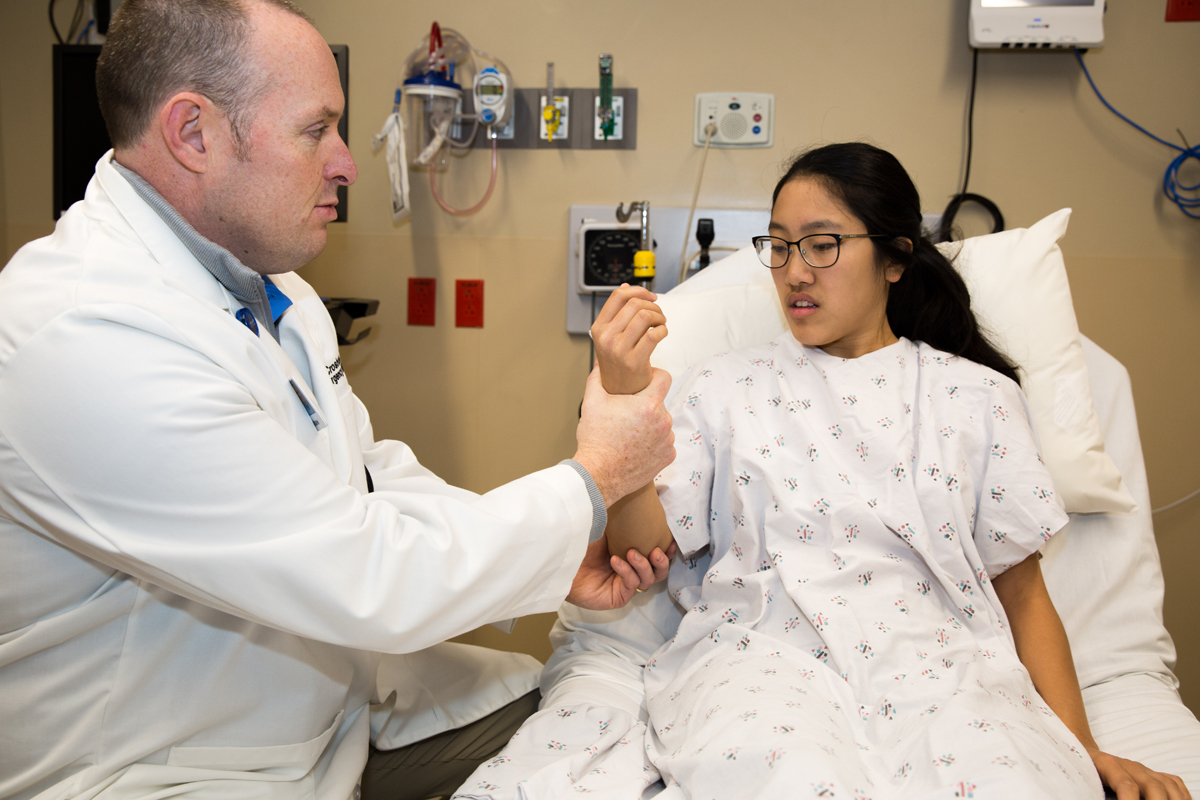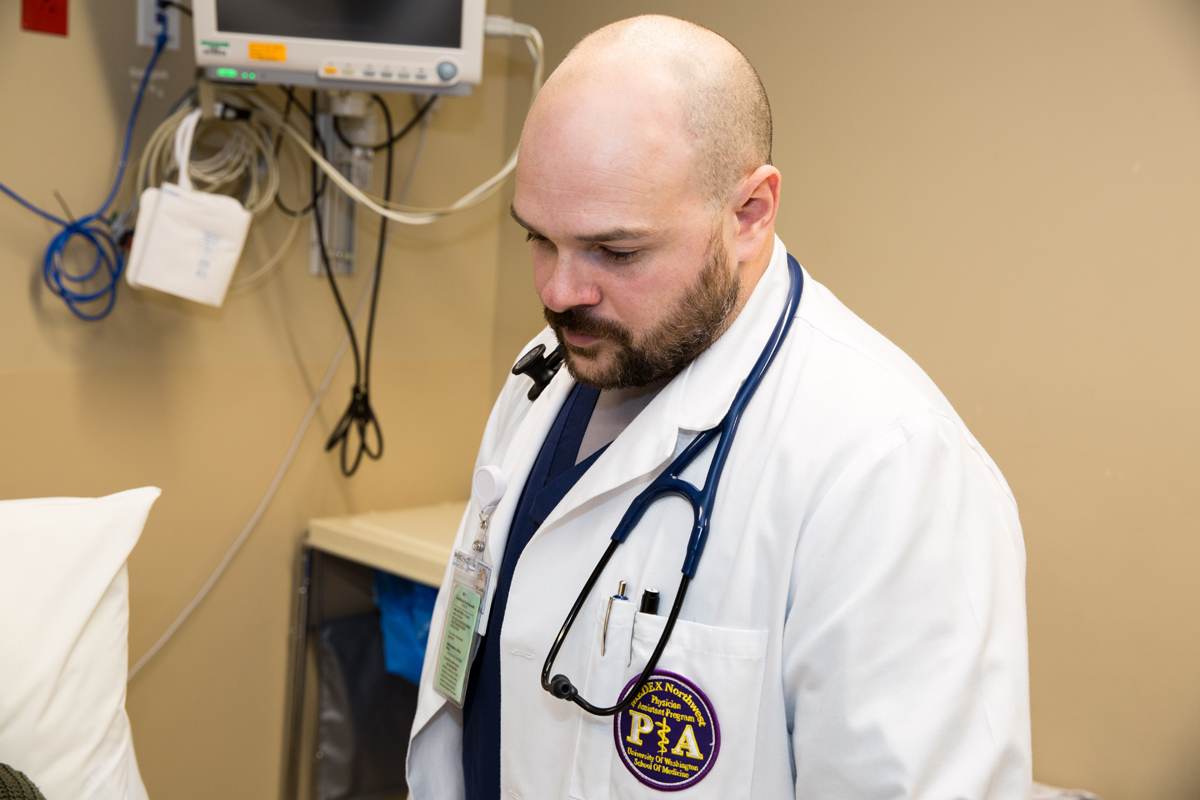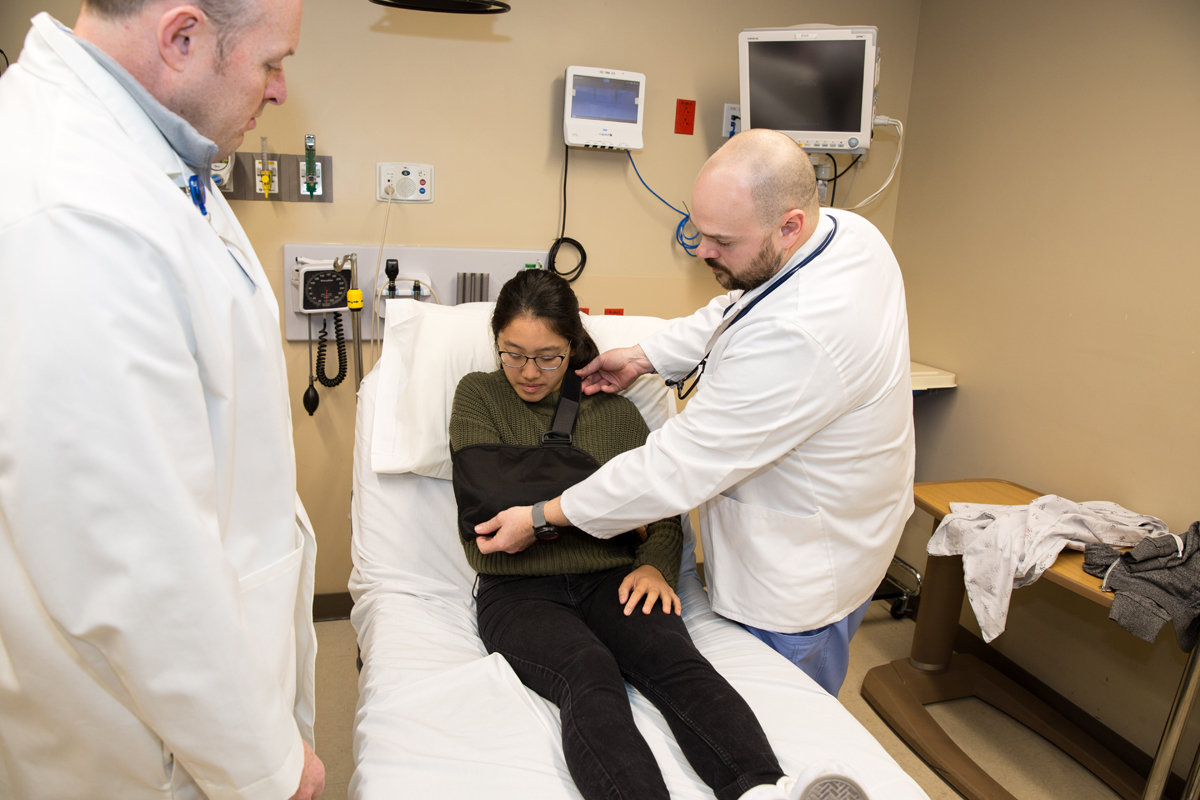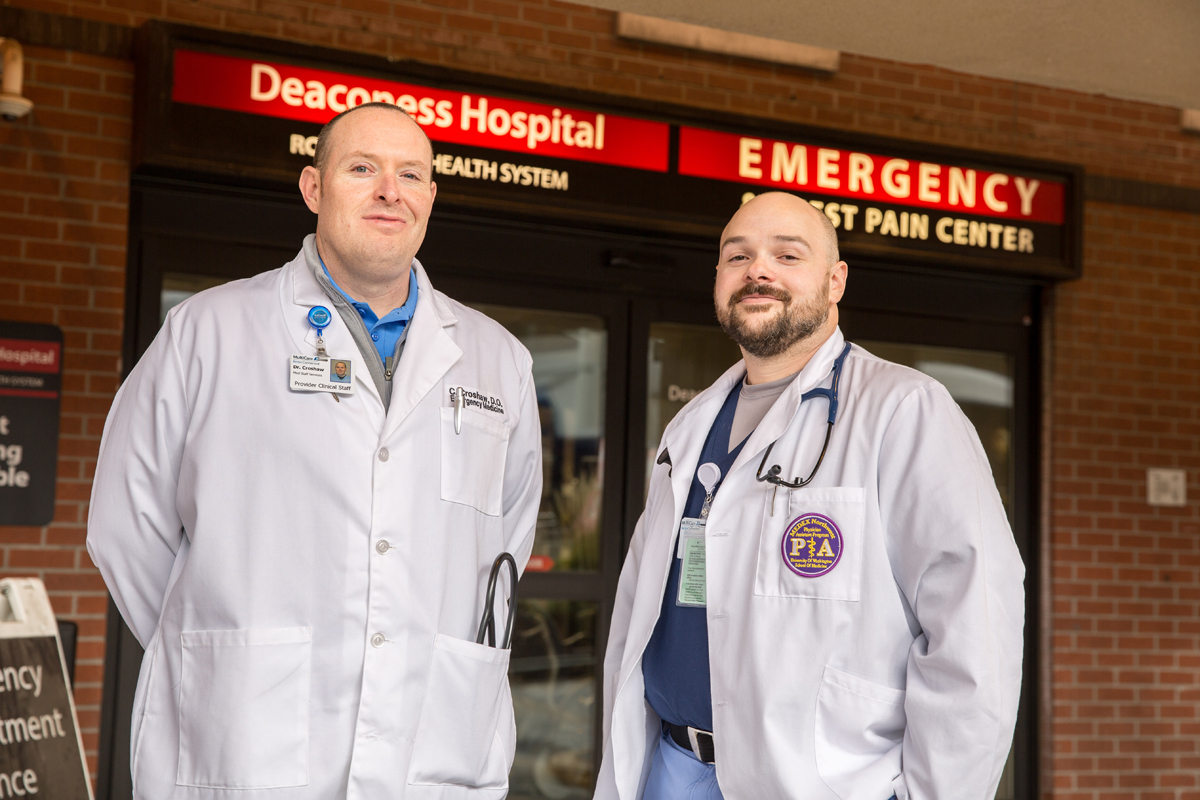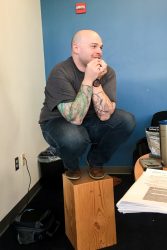Matthew Grisso claims that medicine came to him by accident.
“I was volunteering with the Newberry Springs Fire Department and they told me I had to get my EMT certification to keep working with them,” Matt tells us. So, he got his certification and discovered that there were far more medical calls than there were fires.
“In reality, very few things burn, so I just started chasing down the EMT pathway,” he says. Over the space of two years, Matt migrated from EMT to paramedic, working in many different areas of the paramedic field, from the 9-1-1 system to a tactical based paramedic in the penitentiary system. Later, he parlayed these skills into a job with the cardiology section at a Southern California-based VA hospital.
“All along the way, I was just trying to improve,” says Matt. “It got to the point where it was time to move to the next step. And that’s what this is.”
“This” is two years in the MEDEX Northwest physician assistant program at UW Medicine, where Matthew is currently in his clinical year as part of Spokane Class 21. We catch up with him at his monthlong ER rotation under Colin Croshaw, DO at Multicare Deaconess Hospital in central Spokane.
“This has been a great rotation, one of my favorites,” Matt adds. “Since my background was as a paramedic, I wasn’t highly concerned with this rotation. But coming in here working with the PA team and the docs has been even better than I expected. They really take the time to push me beyond what I know.”
The path to MEDEX was initiated by an on-the-job injury. While working in 2008 as a paramedic in a federal penitentiary, Matt got involved in an altercation with an inmate.
“That did not end very well for me,” he adds. Matt was significantly injured. Surgery and other rehabilitative treatments resulted from this incident.
Because of the injury, his Federal employer would not release Matt back to work. He came away with a permanent injury to his left shoulder that would hamper his ability to lift patients for the rest of his life.
“They told me to start looking for other work since I couldn’t go back to the prison.”
Matt was next hired by the Department of Veterans Affairs in Loma Linda, California. “I worked in cardiology for about eight years, doing everything from EKGs to stress testing,” he says. Matt ended up becoming a supervisor of the cardiology section. “Eventually I realized administration isn’t as much fun as I thought.”
The time was right for Matt to reconsider his future.
At the penitentiary, he had worked side-by-side with physician assistants who pushed him to continue his medical education in that direction. Matt decided to apply to PA school.
“It took me a few years to finish up the prerequisites and get to where I was going,” he tells us. “But that was the route that eventually got me to MEDEX.”
Matt’s PA education was covered through the VA Health Professional Scholarship Program.
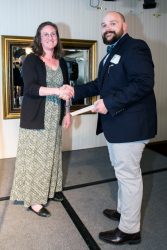
In 2018 Matt received the Richard A. Smith Student Scholarship. Here he is congratulated by MEDEX faculty Keren Wick, Ph.D.
“They’re paying for my school and, in return, I signed a two-year contract to work with them post-graduation.”
The connection to veterans runs deep with Matt. Although not a veteran himself, Matt comes from a family with strong military veteran traditions.
“I tried to enlist in the military when I was younger, but they wouldn’t take me because of a previous injury. I couldn’t make it through their physical screening.” At age 18, this was a big change for Matt. He had always thought of the military as part of his future.
“I always had this connection,” he says. “And if I couldn’t serve directly within the forces, there had to be another way I could give back.”
It all came together around the VA system.
While working for the VA hospital in Loma Linda, Matt discovered the right fit. “I loved it,” he says. “It’s a great patient population.”
Matt was kayaking professionally at the time and saw the need for access to recreational programs for his VA patients. He opened a chapter of Heroes on the Water, a disabled veteran’s charity. “We took guys out and did recreational therapy, kayaking, fishing in the Pacific Ocean.”
San Diego is a huge military hub and there are significant traumatic brain injury issues among the veteran population.
“There’s all these returning wounded military with non-visible injuries, and it seemed like this approach could help,” Matt says. “I mean, I personally have some demons that I wrestle with. A day on the water would help those demons quiet down. It’s so simple, right? Get out and release yourself to the ocean.”
On the water, nothing else matters in that moment other than what you’re doing.
“You’re able to let go of the horrors you saw that day at work, whatever that might have been—in the ambulance or on the battlefield. It just seemed that it would also work for the veteran population.”
Matt brought Heroes on the Water to San Diego, and the chapter quickly grew to become the largest in the nation.
“We’re the flagship,” he says proudly.
Matt ran the chapter for five years before handing it off to his number two in charge once he was accepted into MEDEX.
“It’s still down there and running strong. Plus, there’s a chapter of Heroes on the Water here in Washington, too.”
Matt looked at other PA programs, including several closer to him in California, but the MEDEX mission statement was the best fit. “You know, this was pretty much my only go-to.”
With all his eggs in one basket, Matt recalls talking to somebody in the MEDEX Admissions office the day he applied. “I told them ‘I sold my house, I’m ready, this is where I wanna go.’ And they said something along the lines of, ‘Well, you’re either really confident or really crazy’.”
Most people apply to a number of programs, but Matt knew that MEDEX was part of his destiny.
“Learning about MEDEX founder Dr. Richard Smith and all that this program was based on, I felt the school was a best fit for me.” Matt admits that he may not have been the best academic student. “My earlier grades suffered severely because of what I was doing with the charity, but I wouldn’t have changed a thing.”
During his interview at MEDEX, Matt told the admissions panel, “Look, I have these Fs, and I’ll tell you this is why: I was being a good citizen, and that was far more important than my GPA.”
The interview panel agreed. Spokane Site Director Michael B. Smith, DHEd, MPAS, PA-C reflects on the decision to admit Matthew Grisso.
“While Matt may have struggled early in his academic career, he steadily improved and excelled in his science courses,” says Michael. “Matt had solid GRE scores, outstanding letters of reference, and hands-on patient experience that greatly exceed that of his peers. It was obvious in the interview process that Matt was genuinely caring, compassionate, and committed to underserved populations. For all these reasons, it was very easy to select him for the MEDEX program.”
“I feel like I fit what MEDEX is all about,” Matt adds. “This program means a lot to me because I see the best traits I can have in what this program is trying to produce.”
Matt Grisso has some words of advice for others considering the MEDEX Northwest physician assistant program.
“I’d just like to let them know that even though you may not think you’re qualified, the school has been doing this for so long. They really know what they’re looking for. I’ve helped others out a couple of times with their admissions interviews. One of the things I like to always tell applicants is, don’t compare yourself to the other people there. I remember there was a guy interviewing at the same time as me. He had a Ph.D. in biophysics or something like that, and I had an undergraduate degree in Fish and Wildlife. I made it into MEDEX and he didn’t. One of the things MEDEX Program Director Terry Scott told me is that they can’t train character. Everything you do leading up to this point doesn’t have to be about grades. It’s about who you are as a person and what you want to achieve.”
Matt admits to telling Terry Scott jokingly that he’s gunning to take his job. “But it’s only partly a joke,” he says. “I really am coming for his job.”
Matt graduates in August of 2019. After taking the national certification examination, he’ll be certified as a physician assistant. Already, he’s thinking about his future role in PA education.
“You know, I used to teach for a paramedic school. And it was one of the best jobs I ever had. I really enjoy that education part. It’s fun. That’s my plan eventually, to come back and hopefully teach.”
As part of his contract with the VA Health Professional Scholarship Program, Matt doesn’t have complete control over where he’ll go after graduation.
“I had to sign a mobility agreement with the VA,” he says. “I know for sure that I’ll be working with the VA, but I don’t know where.” Locally, Matt has met the Spokane VA Deputy Chief of Staff and has been offered a position in the area. “I’d love to work for them. As long as Washington DC signs off on this as an appropriate placement, I’d like to stay here in Spokane.”
